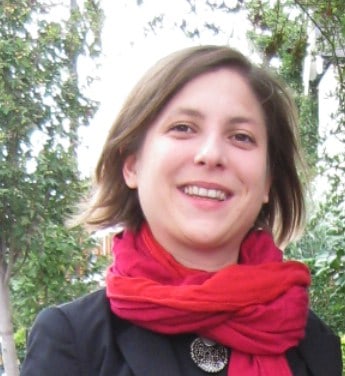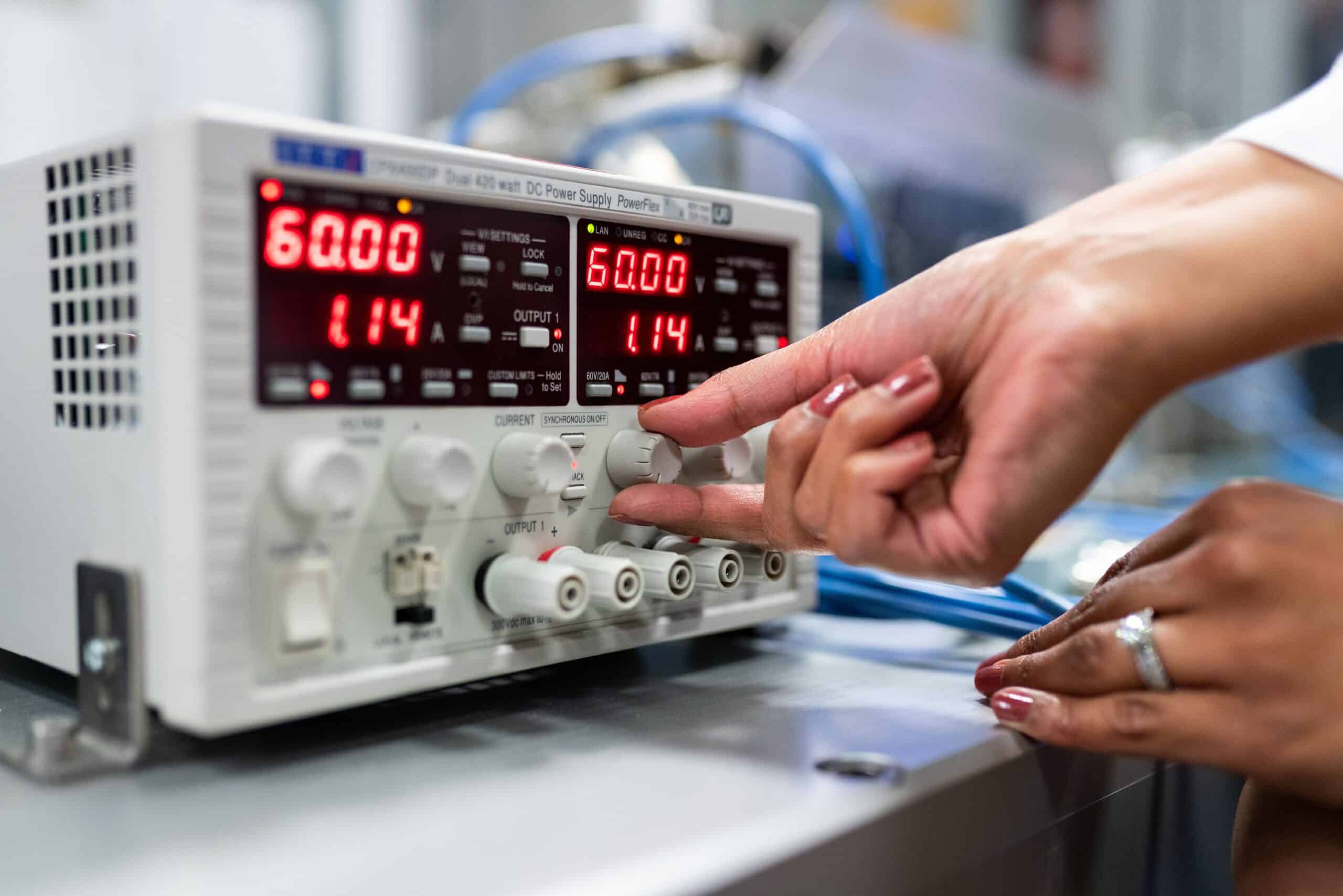Name: Eva-Maria Graefe
Job Title: Royal Society University Research Fellow
Organisation: Imperial College London
Number of years in current position: Less than a year in the current position, five years in the same department on other research fellowships.
Qualifications: (German) Diplom (similar to MSci) in Physics, PhD in Theoretical Physics.
Briefly describe the organisation you work for:
Imperial College is one of the world’s most prestigious universities specialising in science, technology and medicine in the heart of London. The department of Mathematics, in which I work, is one of the largest in the UK.
What is your current role?
I am a research fellow in mathematical physics, in particular my research contains quantum theory. I supervise several PhD students, and I also do a limited amount of undergraduate teaching (mostly quantum mechanics as well).
Explain what you do on an average day at work:
There are two types of typical days in my working life: Those spent in College and those spent on research conferences or workshops all over the world. On a typical day in College a lot of my time is spent meeting my graduate students and discussing our research. This often includes doing calculations together or looking at numerical codes they are writing. There is a certain amount of quiet time I spend alone at my desk thinking or doing calculations, but this is probably much less than you might think. I have to do a lot of reading and learning as well, as it is the nature of research to deal with things you know little about.
I also have to spend some time doing less exciting things, such as responding to loads of work related emails, doing administrative work, and preparing applications for further funding for my research. I also prepare talks and presentations for conferences and workshops, of which I attend many. I attend about six meetings a year on average, most of which are a week long, in countries all over the world (this year I attended meetings in the US, Italy, Israel, Portugal, Germany, and here in the UK). A typical day on these meetings is filled with listening to talks and presentations and most importantly tea and lunch breaks during which I discuss ideas and results with the other researchers.
What do you like most about your job?
I love the freedom of a career in research and academia. Essentially, I am being paid for doing what I like best: thinking about mathematical and physical problems, learning new concepts and techniques, discussing and collaborating with brilliant students as well as established scientists all over the world, and last but not least, teaching future generations of mathematicians.
How did you come to work in a mathematics department being a physicist by training, and do you see yourself as a physicist or a mathematician?
I always enjoyed mathematics at school, but decided to study physics instead (which incorporates a lot of mathematics, especially in Europe), as I liked the higher degree of freedom in thinking which physics offers.
You often hear people say that they like the fact that in mathematics things are either right or wrong. You might argue that this also the case in physics on some fundamental level. The way a physicist thinks is however only partially based on a formal mathematical description of the world, and is much more guided by intuition and interpretation.
During my university studies I felt that while I enjoyed studying the maths components of my degree more than the physics components, I couldn’t see myself being creative in mathematics and coming up with new ideas as much as I did in physics. During my PhD in theoretical physics, however, I more and more came to appreciate that many questions on a foundational level (I worked on quantum physics describing atoms and the like) require not only the use of mathematics, but often “invention” of new mathematical methods or ideas.
There is a long history of mathematics and physics developing in an interconnected way. Think for example of Newton, who needed to invent calculus to describe his laws of gravitation. Similarly, the British Mathematician and Physicist Paul Dirac had to invent a lot of new mathematics to solve physical problems in quantum mechanics.
In a much more modest way I work on the same intersection between mathematics and physics. Here in Britain there is a particularly strong tradition of fostering this type of research, which makes it an ideal home for my work.
What influenced your career choice?
Towards the end of my undergraduate studies I was convinced that I wouldn’t want to become a physicist or mathematician at all, whether in academia or another job. The reason for this was, I believe, that while I was doing well in my studies, it turned out that I wasn’t excited very much by the “second hand” maths and physics which one does while studying. I was already thinking of alternative careers and training, when my final year project turned everything around completely.
Working on my own research project, trying to figure out the answers to things which could not be found in books or the internet was a whole different experience, and I loved it. I also had a very inspiring supervisor, who showed me how much fun research is and that you don’t have to be an unworldly nerd to be a good researcher. Thus, I stayed on for my PhD studies, during which I went on my first international conferences. The experience of traveling to exciting (and sometimes not so exciting) places and the inspiring world leading researchers I have met on these occasions completely convinced me that this is the job for me.
Which skills do you consider to be essential for your job?
You have to be driven to figure out problems and puzzles and be willing and able to learn and apply new concepts and techniques on a very regular basis. Other than that I think interpersonal skills are among the most important skills for a successful research career. Science is a collaborative effort and it is very useful to be able to communicate and engage well with people.
Any advice you may have for other individuals considering your career path?
Try to stay curious and enjoy what you are doing. It is most important that you do not jump through hoops to achieve something you later find you don’t even want. If you want to become a successful researcher follow your own instincts, do what you do best, and find your unique place.
Future career plans?
I love research and academia, and my plan is to stay at Imperial or another University. I currently have a five-year fellowship (that started this year) and I hope to find a permanent position in academia afterwards. An alternative would be to quit academia and to become a novelist – another area I know nearly nothing about.






